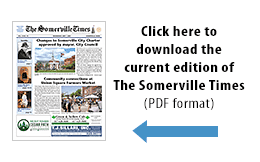
By William C. Shelton
It’s a matter of common decency. That’s an idea which may make some people smile, but the only means of fighting a plague is – common decency.
— Albert Camus
Continuously in print since its 1948 publication, Camus’s The Plague tells the story of a town whose people are preoccupied with the making of money, until a pandemic prevents few – other than looters and profiteers – from doing so. It is a timely read for the currently homebound.
Readers will recognize the entire cast of characters, from government authorities who dither and downplay the menace, to hedonists who pursue pleasure at the risk of infecting others, to ordinary people of goodwill who risk their lives out of “common decency.”
It is at once a detailed narration of human dynamics within a quarantined and imperiled population, and a metaphor for the moral choices presented by human existence. For Camus, the plague is the human condition in which random death can be visited on any of us at any time, without reason, and regardless of our virtues.
The only meaningful response, for him, is to love each other and work – without expectations – to reduce suffering. “All I can say is that on this earth there are pestilences and there are victims – and as far as possible one must refuse to be on the side of the pestilence.” Camus applied his understanding of pestilence and moral responsibility to public policy as well as personal choice.
One of Camus’s characters suggests that most people are better than we think. “You just need to give them the opportunity.”
In Somerville we are blessed with neighbors who are creating such opportunities, through both existing organizations and their own social entrepreneurship. City government was relatively prompt in closing schools and nonessential public and private services.
Now, what we paradoxically have most in common is our isolation. But all over the city neighbors are taking large and small initiative to remedy the problems posed by social separation, lost services, and missing wages.
A particularly ambitious effort is led by neighbors who have constituted themselves as Mutual Aid Medford and Somerville. They have set up an online spreadsheet where people list such needs as food, childcare, medical supplies, and housing, while others sign up to volunteer these goods and services.
Aware that not everyone has internet technology in their homes, they are organizing hyperlocal “pods,” which are small geographical units where a “point person” reaches out to assess and respond to the needs of neighbors. The MAMS website has a map showing where these pods have, or haven’t yet, been established.
At the other end of the scale are small acts that they will make a large difference for individuals and families. Two of my neighbors use the same housecleaner. They will continue to pay her, even though she cannot provide these services. City Councilor Stephanie Hirsch urges others who have the means, to continue paying “gig workers” who “may find it hard to ask clients to provide this continuing support, even if they are in a very bad situation.”
My neighbor Kate Brillantes suggested that we all put rainbows up in our windows to create a counting game for cabin-fevered children whose parents are taking them for a walk. There are now rainbows on over forty houses in the immediate neighborhood.
Mary Cassesso, who works with the Cambridge Health Alliance, described CHA’s acute need for protective masks to neighbor Renée Scott. Renée created a division of labor in which some of us gather fabric, others cut it, and others sew masks.
Meanwhile, members of Somerville’s Artisan’s Asylum are conducting four separate projects to fabricate protective personal equipment for nurses and doctors. One product is a protective shield designed at the University of Wisconsin’s engineering school. The Asylum inmates are producing 1,000 shields for CHA, and expecting other orders from nearby hospitals. Denise Provost reports that Rachel Mello, a past Somerville Open Studios leader, has been collecting donations of similar protective gear from artists for donation to healthcare workers.
Somerville Schools staff have been providing grab-and-go meals for students and their parents, along with free diapers. They’ve distributed over 500 Chromebook computers and technical support to families that have no device in their homes that can access the internet.
Recognizing that there are children in our community who received all three meals of the day from their schools, Dimitra Murphy has stepped up. Many of you will remember her as Dimitra Tsourianis, and others as the owner of Magoun Square’s Daddy Jones restaurant. Courtney O’Keefe tells me that Dimitra has launched a Go-Fund-Me campaign to pay for food assistance. As of this writing, it’s just $1,500 short of its $15,000 goal.
Many of Somerville’s restaurants are offering meals for pickup and delivery to homebound residents. The Chamber of Commerce, Welcome Project, Union Square and East Somerville Main Streets, Velir and the City have collaborated on the Somerville Delivers website, where customers can place orders and restaurants can sign up.
For elders who can get out of the house, Market Basket has set up special shopping hours. Aware of their heightened vulnerability to Covid 19, the store has established Tuesday, Wednesday, and Thursday, 5:30 to 7:00 a.m. as Seniors-only shopping hours.
It is often observed that crises can bring out the best and the worst in people. We are blessed to live in a city where the best dominates the worst.
At The Somerville Times, we want to hear your stories. Please share them with us through the link on our homepage, and we will share them with others. And please continue to inspire us with your acts of common decency and ordinary heroism.















Reader Comments